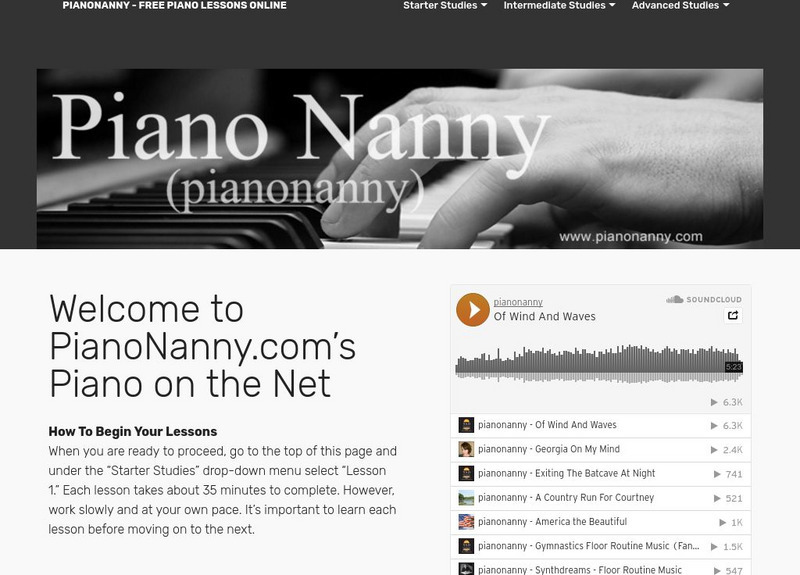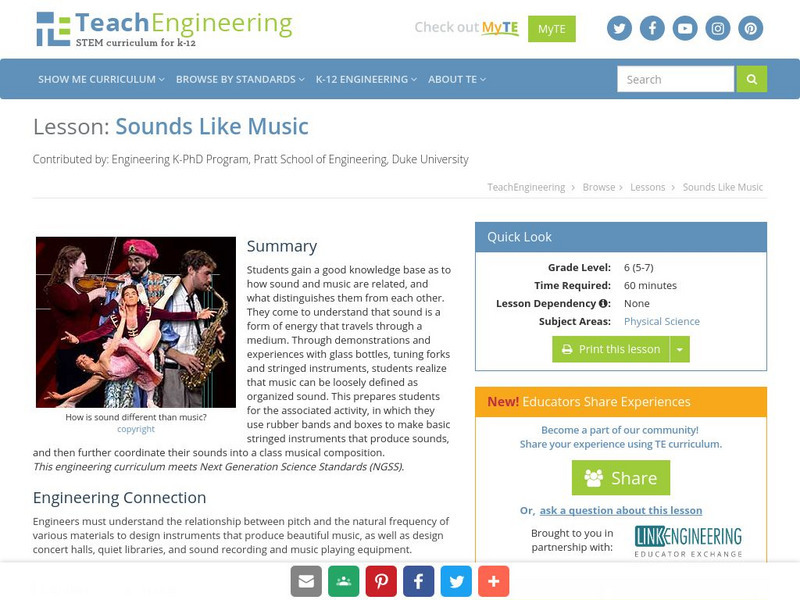Hi, what do you want to do?
Curated OER
Music
Third graders sing the Shaker tune "Simple Gifts" while identifying eighth, quarter, and half notes. They listen to Aaron Copland's Appalachian Spring and recall other ballet music.
Curated OER
Tony Bennett VH1 Storytellers for VH1 Save the Music
Learners explore what messages lyrics give to their listeners. They use music from Tony Bennett and the Backstreet Boys.
Curated OER
Creating, Notating and Recording an Original Song
Students are provided with a set of parameters, including theme, time
signature, number of measures, and form. Working within these parameters, the class , step by step, goes through the process of
creating, notating, and recording a...
Curated OER
No Man is an Island
Pupils sing the melody of the song, "No Man is an Island," in the Oneida native language. They memorize the song and discuss how the words demonstrate important feelings of the Oneida people.
Curated OER
Chicago Rhythms, Chicago Roots
Pupils view a video about different types of music. They examine the history of jazz, big band and rock back to the city of Chicago. They discover Chicago's music scene today and compare it to the past.
Other
The Piano Education Page
"The Piano Education Page" includes a piano lessons and tips, an audition room, a competition calendar, and biographical information on several famous pianists. Have fun listening to piano tunes while learning about this instrument and...
Alabama Learning Exchange
Alex: Forte and Piano
Lesson plan where learners learn what forte and piano mean and idenitfy them in music and pictures that represent sounds. Students also will demonstrate forte and piano while singing a song that they learn from a video.
Other
Piano Nanny: Piano on the Net
This site provides extensive piano lessons, utilizing helpful guides complete with audio. Detailed information on the computer configuration needed for this site is given, as well as a 12 note keyboard.
Music Theory
Music theory.net: Keyboard Trainer
A fantastic resource for music teachers and students learning to play the piano. This online quiz can be customized to test students on specific keys. Students can click "Toggle helpers," to check answers along the way.
Other
Piano Music Sight Reading Practice
Actually this clever site drills pianists on note names and note placement on the keyboard. Kids can access this site at home for practice. Both treble and bass clef are used.
Varsity Tutors
Varsity Tutors: Web English Teacher: August Wilson
Learn more about the famous playwright August Wilson when you visit this educational site. This site features links to several resources ranging from biographical information to lesson plans.
TeachEngineering
Teach Engineering: Sounds Like Music
Music can loosely be defined as organized sound. The instructional activity objectives, understanding sound is a form of energy, understanding pitch, understanding sound traveling through a medium, and being able to separate music from...
OpenStax
Open Stax: Catherine Schmidt Jones: Pitch Sharp, Flat and Natural Notes
Learn about the meanings and uses of pitch and accidentals. Including sharp, flat, natural and double sharps and flats, this lesson explains why they are necessary.















